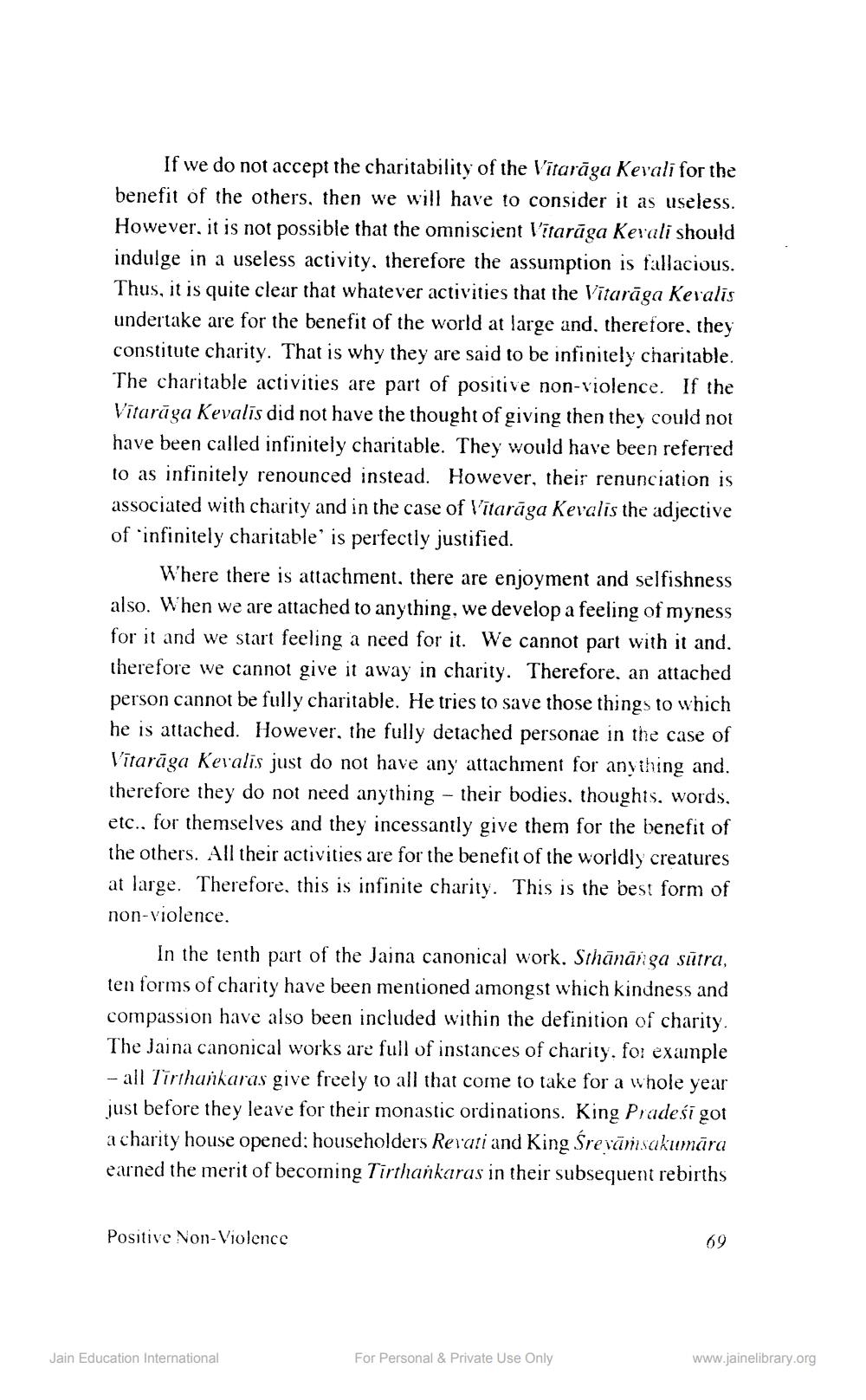________________
If we do not accept the charitability of the Vītarāga Kevali for the benefit of the others, then we will have to consider it as useless. However, it is not possible that the omniscient l'itarāga Kerali should indulge in a useless activity, therefore the assumption is fallacious. Thus, it is quite clear that whatever activities that the Vītarāga Keralis undertake are for the benefit of the world at large and, therefore, they constitute charity. That is why they are said to be infinitely charitable. The charitable activities are part of positive non-violence. If the Vītarāga Kevalīs did not have the thought of giving then they could not have been called infinitely charitable. They would have been referred to as infinitely renounced instead. However, their renunciation is associated with charity and in the case of l'ītarāga Kevalis the adjective of 'infinitely charitable’ is perfectly justified.
Where there is attachment, there are enjoyment and selfishness also. When we are attached to anything, we develop a feeling of myness for it and we start feeling a need for it. We cannot part with it and. therefore we cannot give it away in charity. Therefore, an attached person cannot be fully charitable. He tries to save those things to which he is attached. However, the fully detached personae in the case of l'itarāga Kevalis just do not have any attachment for anything and. therefore they do not need anything - their bodies, thoughts, words. etc., for themselves and they incessantly give them for the benefit of the others. All their activities are for the benefit of the worldly creatures at large. Therefore, this is infinite charity. This is the best form of non-violence.
In the tenth part of the Jaina canonical work. Sthānanga sutra, ten forms of charity have been mentioned amongst which kindness and compassion have also been included within the definition of charity The Jaina canonical works are full of instances of charity, for example - all Tirthankaras give freely to all that come to take for a whole year just before they leave for their monastic ordinations. King Pradeśī got a charity house opened: householders Revati and King Śrevām sakumāra earned the merit of becoming Tirthankaras in their subsequent rebirths
Positive Non-Violence
69
Jain Education International
For Personal & Private Use Only
www.jainelibrary.org




